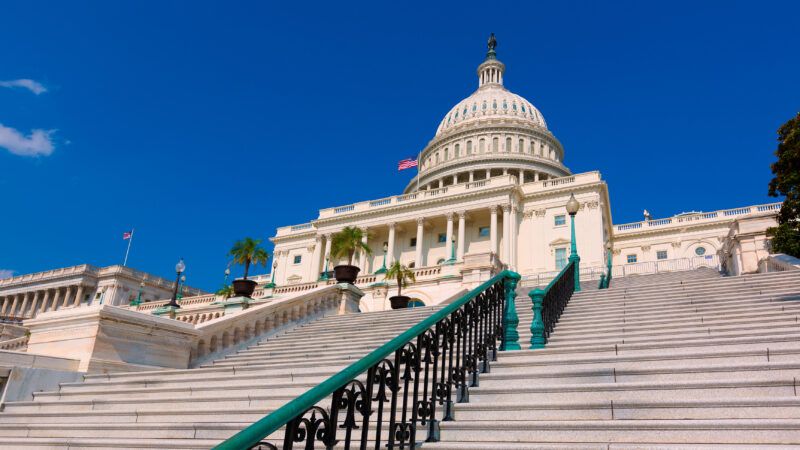House GOP Threatens To Kill 'Baby YIMBY Grant' Program After First Year
The Democrat-controlled Senate meanwhile is proposing to expand the program.

The federal government's "baby YIMBY" grant program hasn't even made it to its first birthday, and it's already being threatened with early retirement.
Back in December 2022, Congress gave the U.S. Department of Housing and Urban Development (HUD) $85 million to kickstart the Pathways to Removing Obstacles to Housing (PRO Housing) program—which was supposed to reward cities and states for removing regulatory barriers to housing construction.
"We need to legalize housing, and abandon the exclusionary zoning that originated during Jim Crow and continues today. Government needs to change its mentality from intentionally constraining the supply of housing to incentivizing it," said Sen. Brian Schatz (D–Hawaii), who secured funding for the program, at the time.
Applications have been pouring in ever since. The housing and transportation appropriations bill that the U.S. Senate passed yesterday includes $100 million for another round of these YIMBY ("yes in my backyard") grants come the next fiscal year.
Potentially bringing the program to a screeching halt is the GOP-controlled House's competing housing and transportation funding bill. The legislation would zero out the program completely before it's even made its first awards.
The Biden administration—which has long endorsed the idea of using federal dollars to incentivize zoning reform—has threatened to veto the House Republicans' spending bill partially on the grounds that it would kill the PRO Housing program.
Whether the program will survive past its first round of awards will now depend on inter-chamber, inter-branch budget wranglings.
Whether it deserves to survive is also a bit of an open question.
Libertarians can convincingly argue that the federal government should spend zero dollars on housing, and therefore any proposal to ax a HUD program (even one intended to incentivize deregulation) should be supported.
Nevertheless, the total abolition of HUD is not on the table right now. House Republicans' more modest budget bill would still give the department $70 billion.
Free marketers in good standing can (and have) argued that since it exists, HUD's budget should include money for YIMBY grants that will see the repeal of harmful, restrictive zoning regulations driving down housing production and driving up housing costs. Better to spend money rewarding deregulation than on subsidizing demand for a supply-constrained good, after all.
With all that said, the actual design of the PRO Housing program suggests it won't actually incentivize much deregulation.
Both the legislation creating the program and the HUD regulations implementing it make it likely that much of the first round of YIMBY grants will pay for plans and studies that do nothing to actually eliminate barriers to housing production.
Hopeful grantees' applications for PRO Housing funding are more cause for pessimism still.
Some cities are asking for money to pay for the implementation of reforms that haven't passed yet (and might never be passed). Others are asking for money to study whether very basic zoning reforms will improve housing affordability when the entire premise of the PRO Housing program is that zoning reform will improve housing affordability.
Even worse, the Senate bill is prematurely trying to expand funding for the program before the first grant awards go out. Before that happens, we can't know how well the program is performing.
At a minimum, Congress should be considering ways to reform the PRO Housing program so that we're getting a lot of zoning reform bang for the bucks spent. That would involve rewarding jurisdictions for actual housing production, not just plans to do studies about possible reforms that might boost housing production.
If it can't have good YIMBY grants, we might as well save the money and have no YIMBY grants.
Rent Free is a weekly newsletter from Christian Britschgi on urbanism and the fight for less regulation, more housing, more property rights, and more freedom in America's cities.


Show Comments (50)